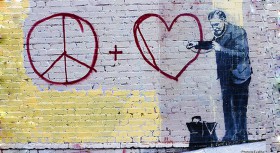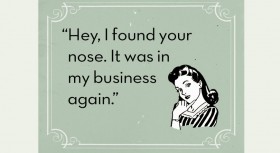"Are you religious?" A young white man in his 20s suddenly struck me with the question. He did not even bother to find out my name.
His question left me dumbfounded. Who on earth would ask such a question at first encounter? I had never met him before, but he was a friend of my host. The only thing he knew about me was what he saw: a petite woman who wrapped her head with a piece of clothes.
Hesitantly I answered him: "Hm... for you, I might look like a religious person, but I don't think other people from my circles think so.”
Since then I have been re-evaluating my stance on this. I have been asking myself what being religious means. Can I call myself religious because I am wearing fully covered clothes? What if I do that because it just makes me feel comfortable?
But I tried to understand why he asked that question. He was born and raised in an irreligious environment. He was curious and when he saw me, he did not want to miss the chance to find answers to his questions.
He bombarded me with question: Why should I stick to one religion? How can I believe in God? When do I feel most connected to the Most Powerful Force? These were questions that I had never expected to come from a person I had just met. I don't think my parents had ever asked me this kind of questions. But instead of making me feel like I was being attacked or judged, his questions made me re-think my faith.
Also read: Logic Over Faith: The Quest to Restore My Belief
His questions made me remember my journey of discovering and re-discovering my own faith. My mind began to recall the relationship with Islam from childhood to adulthood. There was that moment when I asked my mother why God could not be seen; when my father would bring home religion-related materials to read; when I was introduced to a more comprehensive system of the faith at the state-owned religious school I attended for three years, and when I had a faith crisis in my early twenties. I now realized that it was never the religion I was disappointed with. Rather it was always the people.
It must be random chance that I was born to parents who practice religion devoutly. They introduced me to the teaching before I could read. They taught me to read in Arabic while I was still struggling to read Latin. Where I grew up, it was a necessity for a child to be able to read Qur'an fluently before graduating from primary school.
But did I understand what I read? That's another story.
So, what does it mean to be religious? Does it mean to believe in religion? Does it mean to practice religion?
Can humans still practice religion although we do not truly understand what we believe in? Is it not basically just imitating what our predecessors did before? Is religion then merely something passed on from one generation to the next – an inherited belief system?
Also read: After Years Snubbing My Religion, I’ve Finally Made Peace with It
When I reach mid-twenties, I realized I had changed so much in perceiving the term "religious". Religion is not simply having faith in an “invisible force.” It is beyond believing, beyond any attributes and rituals.
Today I see so many people believe in God's existence without even practicing any particular religion. People can be kind and ethical even when they don’t believe in God. As human, I think we are naturally drawn to kindness, we are intrigued to seek the truth. But the way human sees what truth is may vary. Some may find it through religions, some through philosophy or science, some find it in all of them. And that should be fine, shouldn’t it?
I was grateful for my conversation with that curious guy, as it reminded me that it is actually not easy for me to call myself religious. It is something I take for granted. Also, I cannot deny that my experience in interacting with more conservative religious groups has influenced how I see my religious practices. Subconsciously, I looked to them as the parameter of being religious.
To be or not to be religious is a choice, one that has to be made consciously. And we should be fully aware that every choice we make has its own consequences. Meanwhile, I am still having a hard time myself defining what religious means, not just in a literal sense.







Comments